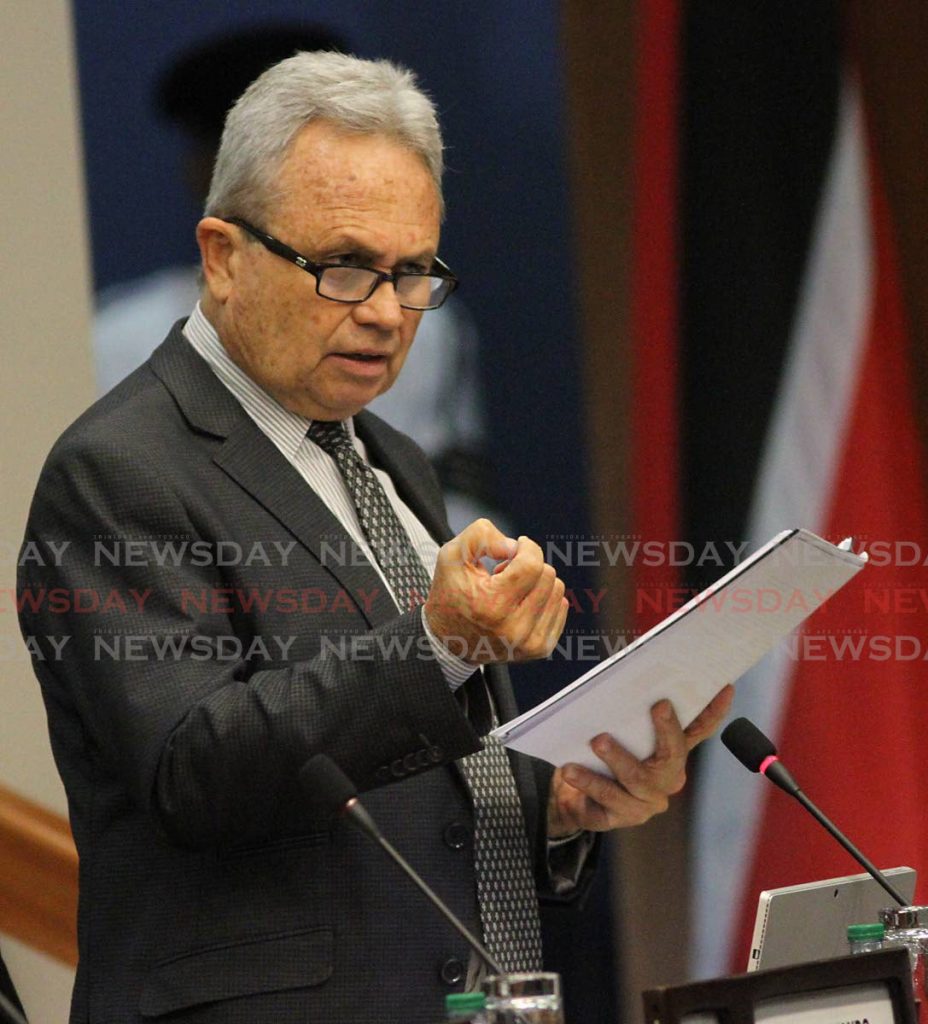Imbert: Government can't afford high wage increases in public sector

Government would face "an astronomical cost" if it agreed to significant wage increases in the public sector that it could not afford, Finance Minister Colm Imbert said on Tuesday.
Imbert, laying out the figures to the Senate, explained Government, through the Chief Personnel Officer (CPO), was on course in early 2020 to negotiate allowances, but the plan was set back by the covid19 pandemic. And the combined impact with the budget shortfall of an estimated $16 billion meant there would be "consequences" if negotiations were settled too high.
Imbert was responding to a question posed by Opposition Senator Wade Mark on public-sector negotiations.
The minister said in early 2020, Government had given the CPO a remit to start discussions with trade unions with respect to allowances, with an estimate of $765 million for a five-year period, 2014-2019.
“The total cost would have been $765 million at that time for allowances, and we thought we might be able to be accommodate in early 2020, when we were enjoying fairly reasonable oil prices, fairly good production, fairly good economic activity in the country.”
He said covid19 hit the country and Government found itself in a situation where there was a shortfall between revenue and expenditure of $15-$16 billion.
“Therefore, it was just not feasible to proceed with that plan in the context of the problems associated with covid19. We simply did not have that $765 million to make available at that point in time, and in fact the additional recurrent expenditure of these allowances would have been close to $150 million – $140 million, actually. So we simply didn’t have the ability, in the face of the $16 billion hole in the budget created by covid19, to authorise the CPO to continue with that plan.”
Imbert gave an example of what it would cost to settle public-sector wages at a nine per cent increase compared to three per cent for 2014-2016.
“If, for example, the Government was to authorise the CPO to offer a nine per cent increase to the 89-odd thousand people in the public sector, the CPO has advised that the cost of that, up to December 2020, would be $7.2 billion. Let me repeat that, if a nine per cent increase was granted for the period 2014-2016, with the associated back pay –and that is only up to 2016 – the cost to the country would be $7.2 billion.
"If, on the other hand, a three per cent increase was offered and agreed to, and you had consolidation of COLA and the reintroduction of a cost-of-living allowance at the current rate of $225, the cost to the country would be $3.8 billion.”
He said in 2015 the PNM government had to settle negotiations agreed to by the previous administration that amounted to a $6 billion back pay liability.
The minister also gave the example of a recent salary increase, which he said was in the range of ten-11 per cent, awarded by the Industrial Court to National Petroleum (NP) workers, which had the company operating at a loss.
“As a result of that salary award by the Industrial Court, NP is now running at a loss every month in the vicinity of $15-$20 million. NP certainly does not have $15 million to spare every month as a result of that Industrial Court judgement, so NP has now been put in a very difficult situation, and that’s over $200 million a month that they will have to find, which they do not have.”
Imbert said he used the NP example to put the demand for Government to negotiate with unions in context.
“It is all very well for people to demand these things, but the effect of what Senator Mark is demanding would be an astronomical cost to the country, for which there would be consequences.”


Comments
"Imbert: Government can’t afford high wage increases in public sector"